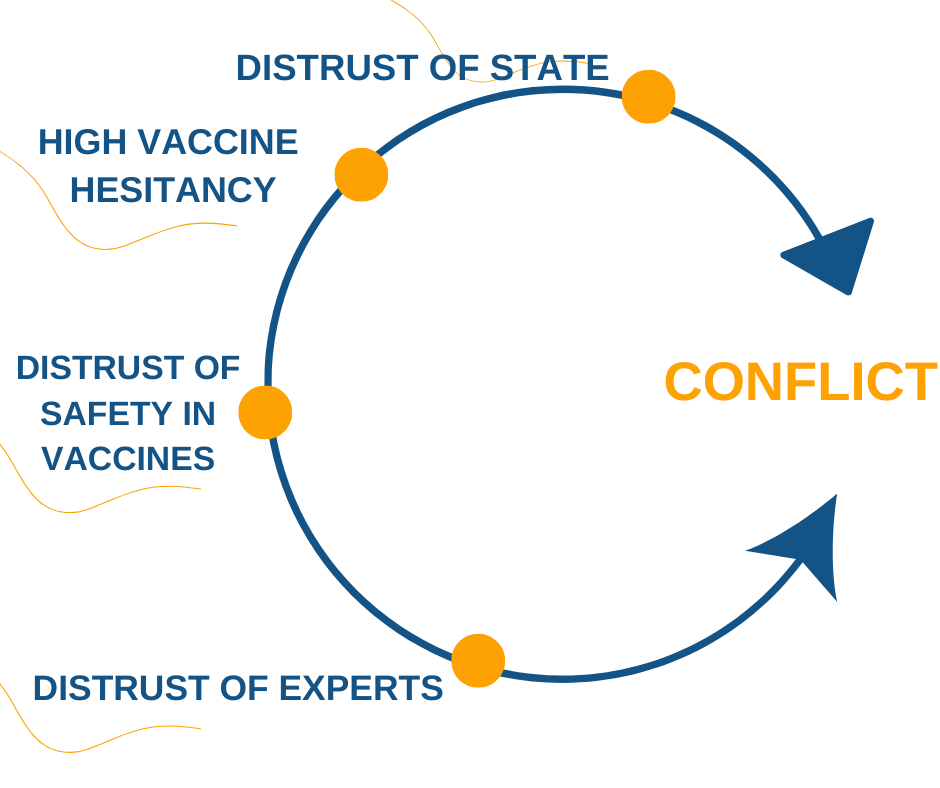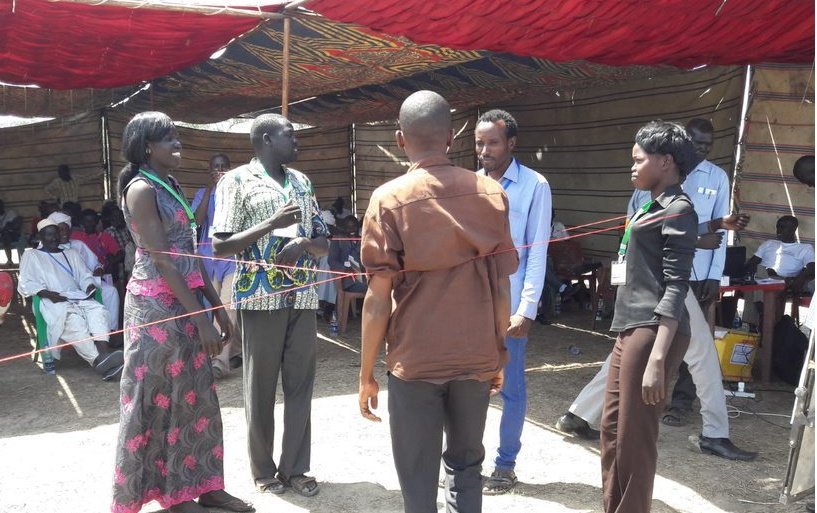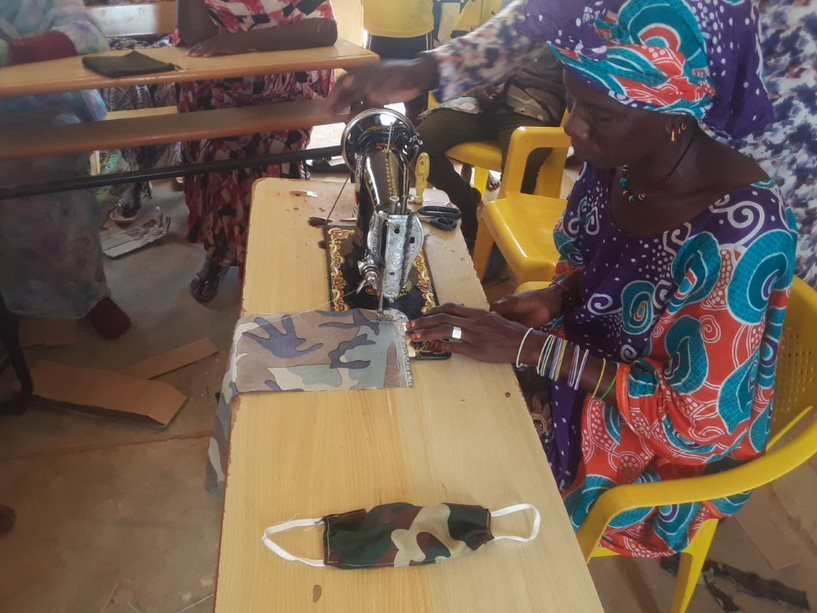Peacebuilding in a pandemic
COVID-19 made peacebuilding even harder, and re-traumatised people already bereaved by conflict. Not only was vaccine supply limited by the West; people weren't taking up the vaccines available to them, and providing vaccines to rural areas was difficult. Confidence in the government to deliver a vaccine that was safe was low.
Increasing extreme poverty
Mass unemployment
Lots of community contact
Increasing food insecurity
Decreasing resilience
Strained health services
These challenges made it extremely difficult for us to help people, but it also made our work more important than ever. Fortunately, our commitment to working with people who live and work at the heart of conflict enabled us to continue, and even to grow our work, despite the challenges of the pandemic.
Central African Republic
We identified and trained networks of local peacebuilders through our advisory groups. We used these peace networks to deliver smaller, outdoor and local dialogues, respecting social distance.
Abyei
We trained youth and women’s groups to facilitate community-led peace dialogues.
Mauritania
Our network of 110 community mediators have been in place for over 5 years and continued to build peace where they live. We organised women's cooperatives to make face masks for their communities.




